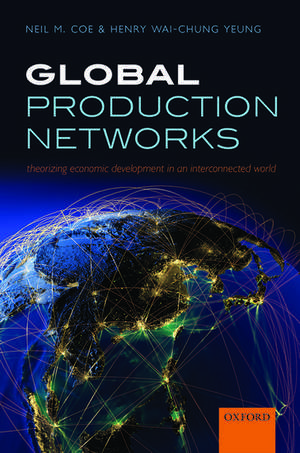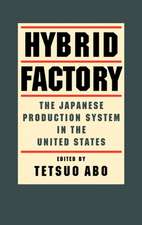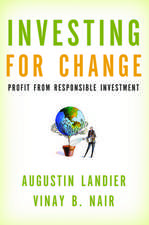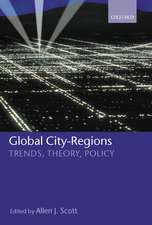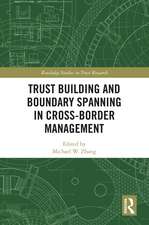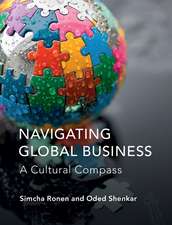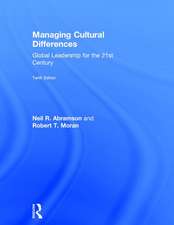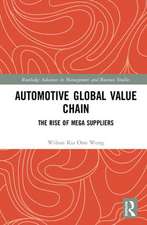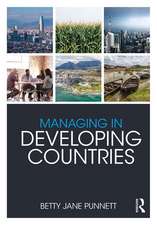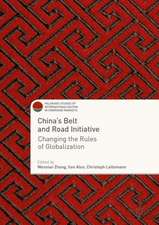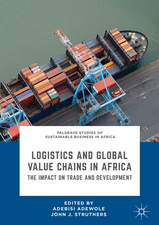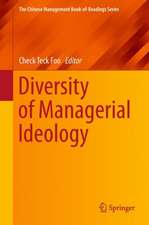Global Production Networks: Theorizing Economic Development in an Interconnected World
Autor Neil M. Coe, Henry Wai-chung Yeungen Limba Engleză Paperback – 30 apr 2015
| Toate formatele și edițiile | Preț | Express |
|---|---|---|
| Paperback (1) | 263.89 lei 31-38 zile | |
| OUP OXFORD – 30 apr 2015 | 263.89 lei 31-38 zile | |
| Hardback (1) | 614.07 lei 31-38 zile | |
| OUP OXFORD – 30 apr 2015 | 614.07 lei 31-38 zile |
Preț: 263.89 lei
Nou
Puncte Express: 396
Preț estimativ în valută:
50.49€ • 52.72$ • 41.79£
50.49€ • 52.72$ • 41.79£
Carte tipărită la comandă
Livrare economică 24-31 martie
Preluare comenzi: 021 569.72.76
Specificații
ISBN-13: 9780198703914
ISBN-10: 0198703910
Pagini: 288
Dimensiuni: 156 x 234 x 16 mm
Greutate: 0.43 kg
Editura: OUP OXFORD
Colecția OUP Oxford
Locul publicării:Oxford, United Kingdom
ISBN-10: 0198703910
Pagini: 288
Dimensiuni: 156 x 234 x 16 mm
Greutate: 0.43 kg
Editura: OUP OXFORD
Colecția OUP Oxford
Locul publicării:Oxford, United Kingdom
Recenzii
Coe and Yeungs Global Production Networks is a significant addition to the diverse and rapidly growing literature on international economic development . . . The book contains numerous insights and hypotheses that can guide future empirical research, and it is likely to both sharpen theoretical debates and offer grounds for constructive dialogue among the many scholars who look at economic development through the lens of inter-firm production networks.
This book provides an important contribution to analysis of the growing complexity of global production networks. It is published at a key juncture given rapid expansion of consumer end-markets within the global South. Its exploration of the implications for uneven economic development is essential for assessing varied strategic options facing diverse actors in the contemporary global economy.
This book is a major and original contribution to the study of the global economy, and unique in the ways in which it provide a rigorous conceptual map of the dynamic and geographical complexities of the current global economy. It is, by far, the fullest and most significant book on global production networks to date. It is a major achievement and will be an important work in economic geography and economic sociology.
Given the absence of a book-length treatment of GPN's by the extant literature, the value-add offered by Coe and Yeung in terms of delineating unified casual explainations for the rise and persistence of GPN's is timely and noteworthy. Across its six chapters, the book is cognizant of complementary aproaches, and seeks to inform subsequent empirical exploration by attempting conceptual development of the GPN framework. Coe and Young proceed to profile the actors involved in GPN's as well as the characteristics of these networks in Chapter 2. This is a key strength of the book, where the role of actors ex-firms such as the state, international organisations, and intermediaries are acknowledged and scrutinised for their impact on overall firm activity. Coe and Yeung have done an excellent job in illuminating a fundamental puzzle involving the evolution of production in the world economy, even as they develop a coherent theory of GPN's.
This book provides an important contribution to analysis of the growing complexity of global production networks. It is published at a key juncture given rapid expansion of consumer end-markets within the global South. Its exploration of the implications for uneven economic development is essential for assessing varied strategic options facing diverse actors in the contemporary global economy.
This book is a major and original contribution to the study of the global economy, and unique in the ways in which it provide a rigorous conceptual map of the dynamic and geographical complexities of the current global economy. It is, by far, the fullest and most significant book on global production networks to date. It is a major achievement and will be an important work in economic geography and economic sociology.
Given the absence of a book-length treatment of GPN's by the extant literature, the value-add offered by Coe and Yeung in terms of delineating unified casual explainations for the rise and persistence of GPN's is timely and noteworthy. Across its six chapters, the book is cognizant of complementary aproaches, and seeks to inform subsequent empirical exploration by attempting conceptual development of the GPN framework. Coe and Young proceed to profile the actors involved in GPN's as well as the characteristics of these networks in Chapter 2. This is a key strength of the book, where the role of actors ex-firms such as the state, international organisations, and intermediaries are acknowledged and scrutinised for their impact on overall firm activity. Coe and Yeung have done an excellent job in illuminating a fundamental puzzle involving the evolution of production in the world economy, even as they develop a coherent theory of GPN's.
Notă biografică
Neil M. Coe is Professor of Economic Geography at the National University of Singapore. His research interests are in the areas of global production networks and local economic development; the geographies of local and transnational labour markets; the geographies of innovation; and institutional and network approaches to economic development. He has published over 75 articles and book chapters on these topics, and is a co-author of Spaces of Work: Global Capitalism and the Geographies of Labour (Sage, London, 2003) and Economic Geography: A Contemporary Introduction (Wiley, NJ, 2013, second edn.). He is an Editor of the Journal of Economic Geography and Director of the Singapore Journal of Tropical Geography.Henry Wai-chung Yeung is Professor of Economic Geography and Co-Director of GPN@NUS Centre at the National University of Singapore. He was awarded the 2017 Murchison Award for his 'pioneering publications in the field of globalization'. The award is given by the Royal Geographical Society (with the Institute of British Geographers). His research interests cover global production networks, East Asian firms, and the political economy of development. He is the author of Transnational Corporations and Business Networks (Routledge, 1998), Entrepreneurship and the Internationalisation of Asian Firms (Edward Elgar, 2002), and Chinese Capitalism in a Global Era (Routledge, 2004). He has published 7 edited books, over 85 academic journal articles, and 40 book chapters. He is Editor of Environment and Planning A and Economic Geography, and serves on 20 other international journals.
